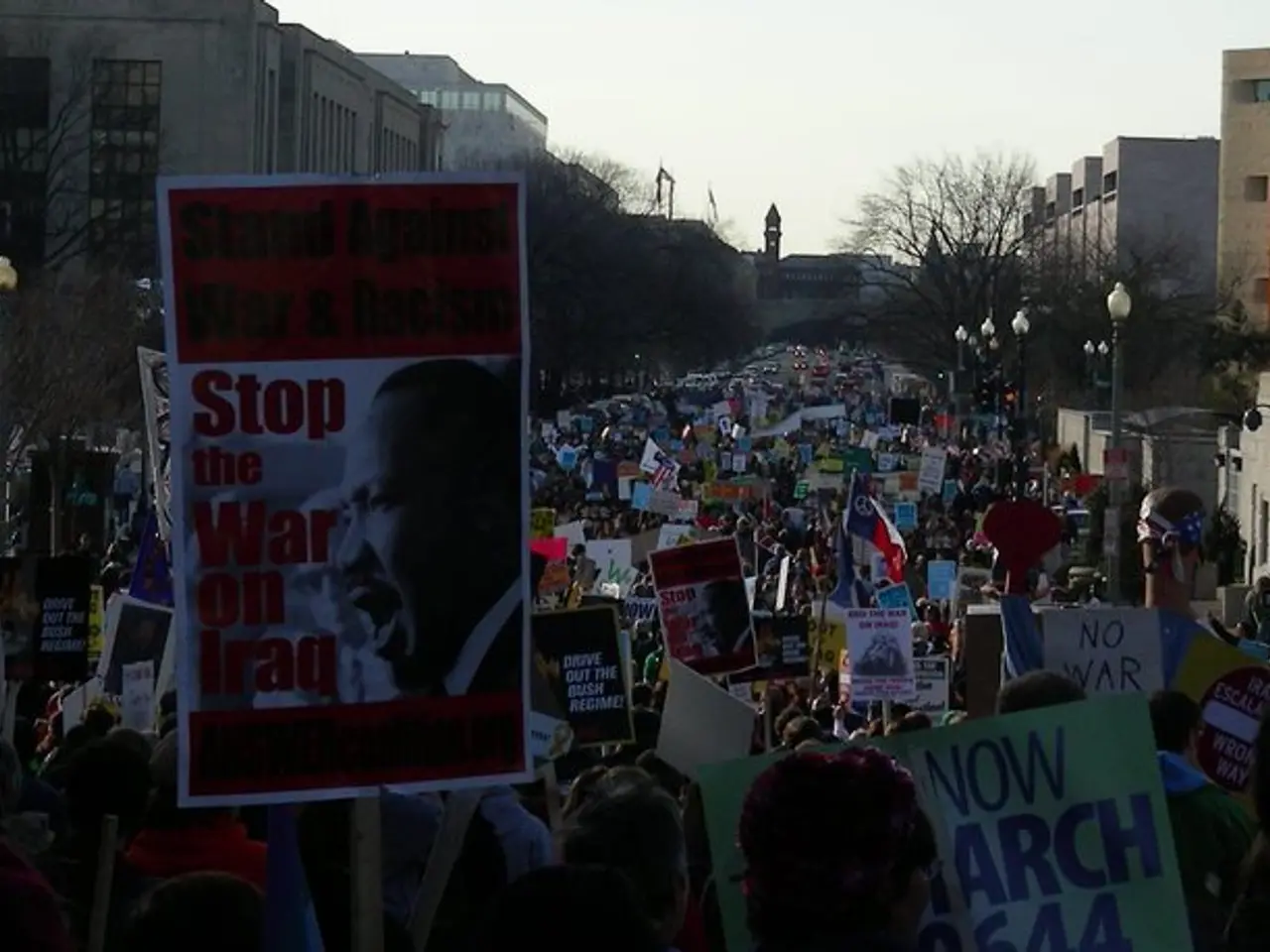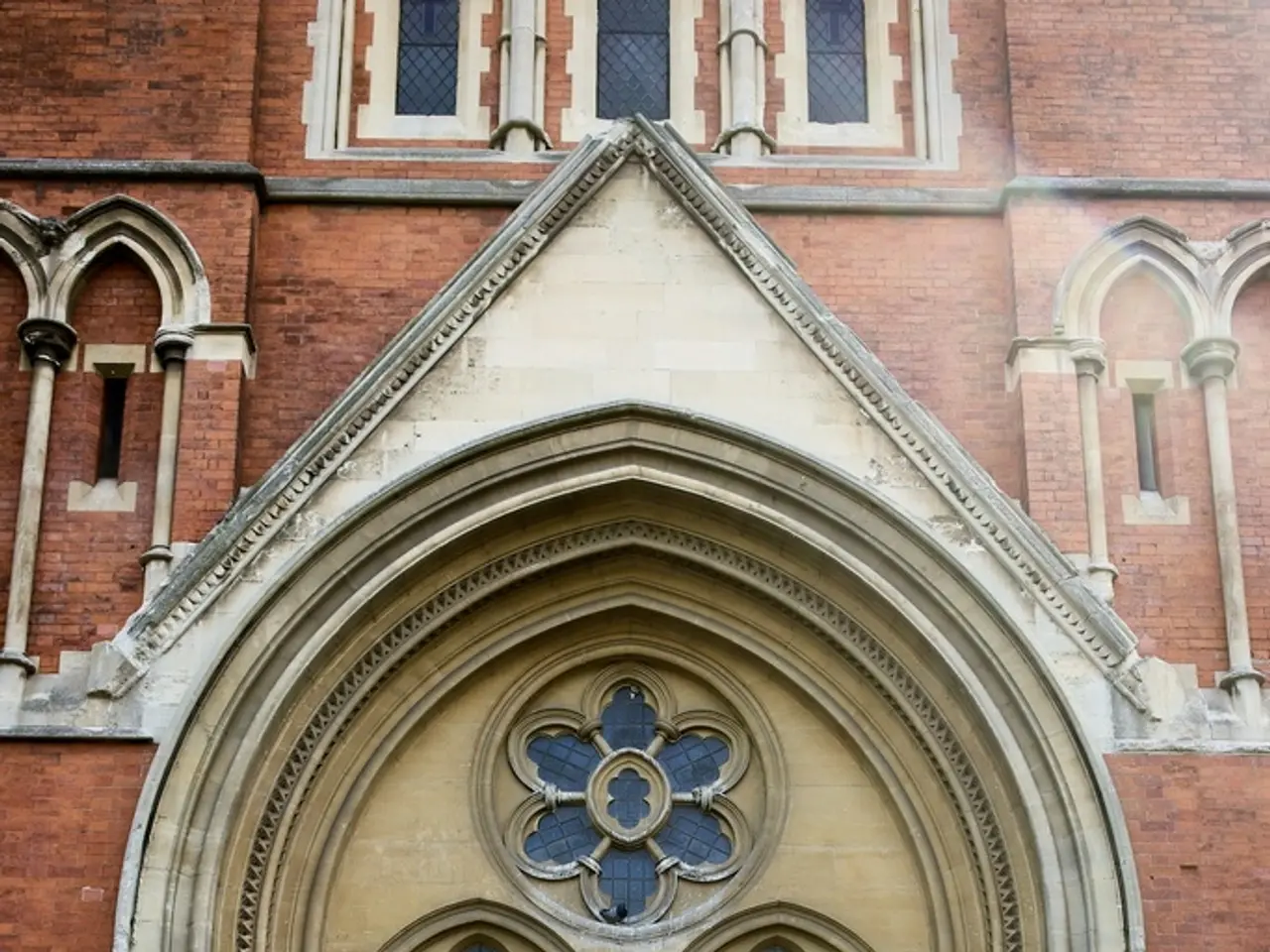Protests in Bangkok Erupt: Citizens Assert Thai Prime Minister's Ouster Due to Cambodia Controversy
In a dramatic turn of events, Thailand is grappling with a severe political crisis, marked by widespread protests, coalition fragmentation, and legal challenges. The crisis was triggered by the leak of a phone call between Prime Minister Paetongtarn Shinawatra and Cambodia's former leader, Hun Sen, which has stirred nationalist outrage and public outcry.
Thousands of Thais rallied in Bangkok on June 28, 20XX, demanding Paetongtarn's resignation. The demonstrators, organized by nationalist groups including the "Yellow Shirts" and the United Force of the Land, chanted slogans like "Ung Ing, get out" and carried national flags and placards labeling her a "traitor" and "sell-out PM." The protesters were angered by the leaked recording, in which Paetongtarn was perceived as too deferential to Hun Sen and criticizing Thai military leadership.
The political fallout from this scandal has resulted in the breakdown of the coalition. The Bhumjaithai Party, a crucial coalition partner, withdrew from the government, leaving the Pheu Thai-led coalition with a fragile parliamentary majority. This withdrawal raises the possibility of a no-confidence vote, increasing uncertainty about the coalition's survival.
The crisis deepened on July 1, 20XX, when the Constitutional Court suspended Prime Minister Paetongtarn from office by a 7-2 vote pending a case accusing her of dishonesty and ethical breaches related to the phone call leak. Separately, the National Anti-Corruption Commission (NACC) is investigating her, which could lead to further legal proceedings and possibly a political ban.
The ongoing political tensions are compounded by ongoing political scandals, including the major 2024 Senate election scandal involving allegations of systemic vote-buying, and the legal pressures on Paetongtarn's father, former Prime Minister Thaksin Shinawatra, who is on trial for lèse majesté charges. Thaksin’s situation adds to the family's political vulnerability.
The political turmoil has spooked investors, leading to a significant withdrawal of foreign capital and sharp declines in the Thai baht and stock market indices. This has heightened economic uncertainty amid Thailand’s fragile recovery.
Given Thailand’s historical pattern of military involvement in politics — having experienced 12 coups since 1932 — there are growing fears that the ongoing crisis could provoke a military intervention, especially as political stability deteriorates and leadership gaps persist.
In a rally addressing the crowd, a legal scholar stated, "We are united... to safeguard our national and territorial integrity." The protesters' demands are clear: they want Prime Minister Paetongtarn Shinawatra to step down and safeguard Thailand's sovereignty.
As the situation remains volatile with significant risks of escalation or prolonged instability, Thailand's future hangs in the balance. The path forward is uncertain, but one thing is clear: the Thai people are united in their desire for a stable and sovereign nation.
- Amid the political crisis in Thailand, war-and-conflicts and crime-and-justice news outlets are closely monitoring the ongoing protests, as the government is under mounting pressure due to legal challenges and growing calls for the resignation of Prime Minister Paetongtarn Shinawatra.
- As general news outlets continue to cover the dramatic political crisis in Thailand, policy-and-legislation analysts are keeping a close eye on the breakdown of the coalition, potential no-confidence votes, and investigations by the Constitutional Court and National Anti-Corruption Commission, which could further destabilize the government and impact the country's future.





